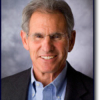Jon Kabat-Zinn

Jon Kabat-Zinn
Jon Kabat-Zinnis Professor of Medicine Emeritus and creator of the Stress Reduction Clinic and the Center for Mindfulness in Medicine, Health Care, and Society at the University of Massachusetts Medical School. Kabat-Zinn was a student of Buddhist teachers such as Thich Nhat Hanh and Zen Master Seung Sahn and a founding member of Cambridge Zen Center. His practice of yoga and studies with Buddhist teachers led him to integrate their teachings with those of science. He teaches mindfulness, which he...
NationalityAmerican
ProfessionEducator
Date of Birth5 June 1944
CountryUnited States of America
It’s interesting to look at your children as line-in Zen masters who can put their finger on places where you’re resistant, or thinking narrowly, in ways noone else can. You can either lose your mind and your authenticity in the process of reacting to all that stuff, or you can use it as the perfect opportunity to grow and nourish your children by attending to what is deepest and best in them and in yourself.
The importance of the development of the emotional body is hardly recognized today. We are pretty much left to our own devices to come to full adulthood, whether man or woman. Our elders may have become so denatured themselves from a lack of such nurturance that there is no longer a collective knowledge of how to guide the awakening emotional vitality and authenticity of our young people, our children. Mindfulness may contribute to a reawakening of this ancient wisdom in ourselves and in others.
When you have children, you realize how easy it is to not see them fully, and perhaps miss all those early years. If you are not careful, you can be too absorbed in work, and they will be only too happy to tell you about it later. Being a parent is one of greatest mindfulness practices of all.
Most of the time, if you're not really paying attention, you're someplace else. So your child might say, "Daddy, I want this," and you might say, "Just a minute, I'm busy." Now that's no big deal-we all get busy, and kids frequently ask for attention. But over your child's entire youth, you may have an enormous number of such moments to be really, fully present, but because you thought you were busy, you didn't see the opportunities these moments presented. . . . People carry around an enormous amount of grief because they missed the little things.
It is a form of violence, to not see a being for who he or she really is. You think, "Oh, that's my son." But the lens, "my son," completely obliterates the multi- dimensions of that being. Maybe you only see your disappointments in that child, or you aspirations for that child, but that's not the child.
Meditation had never been tried before in a medical center, so we had no idea whether mainstream Americans would accept a clinic whose foundation was intensive training in meditative discipline.
I don't want people following Jon Kabat-Zinn. I want them following themselves.
I loved science, and when I discovered Buddhist meditative practices and martial arts, I was able to bridge those ways of knowing the world into my own unique way. From that grew the Mindfulness-Based Stress Reduction (MBSR) program, which became my karmic assignment.
I'm challenging everybody on every side of every divide to be more who they are, to cultivate their capacity for awareness.
It is what makes us human, what distinguishes us from other animals. We can be aware of being aware.
Mindfulness is often spoken of as the heart of Buddhist meditation. It's not about Buddhism, but about paying attention. That's what all meditation is, no matter what tradition or particular technique is used.
Science gave me a cosmic religious feeling, and I would get the same feeling when I was dragged to the Met and the Museum of Modern Art.
You don't need the iPhone: you have the most exquisite apparatus in the known universe sitting right in your head - the most complex organization of matter in the entire universe. And here are we, feeling a little depressed, feeling like we're not getting where we need to be, when really you might be exactly where you need to be.
I'll take transformational change any way it comes. One way to look at meditation is as a kind of intrapsychic technology that's been developed over thousands of years by traditions that know a lot about the mind/body connection. To call what happens 'the placebo effect' is just to give a name to something we don't understand.